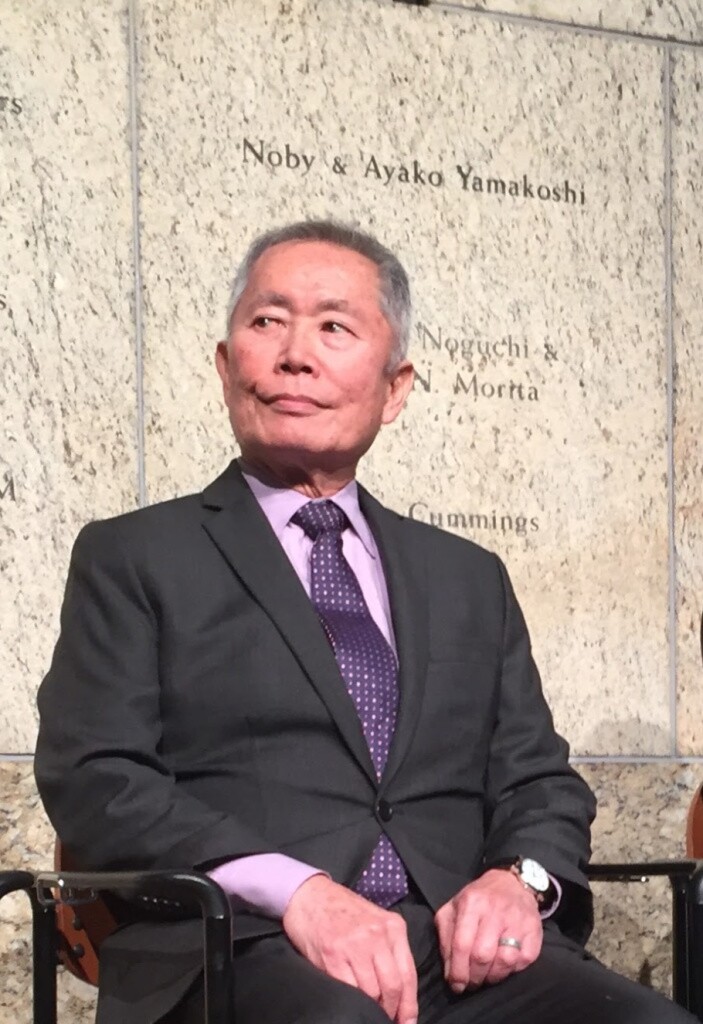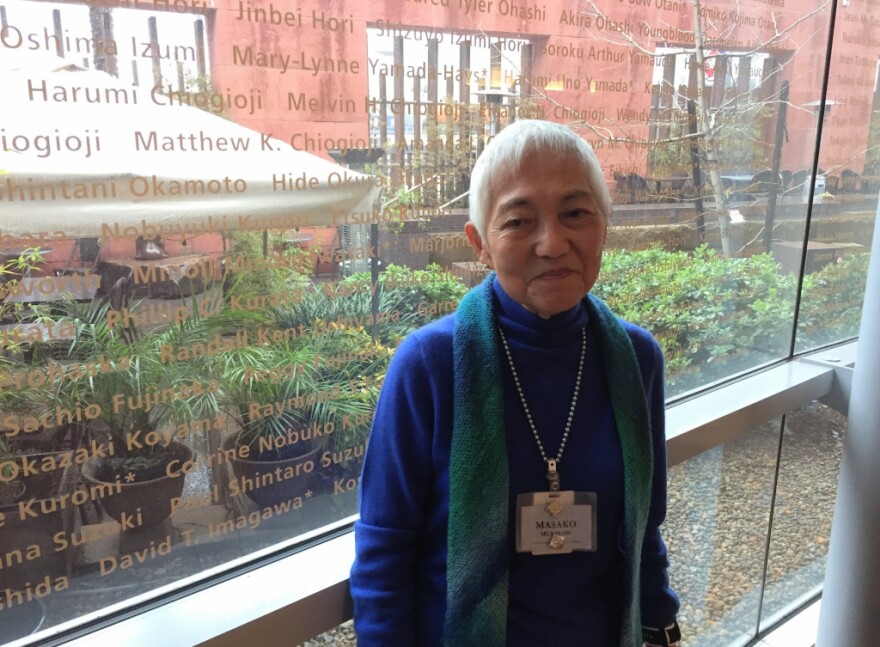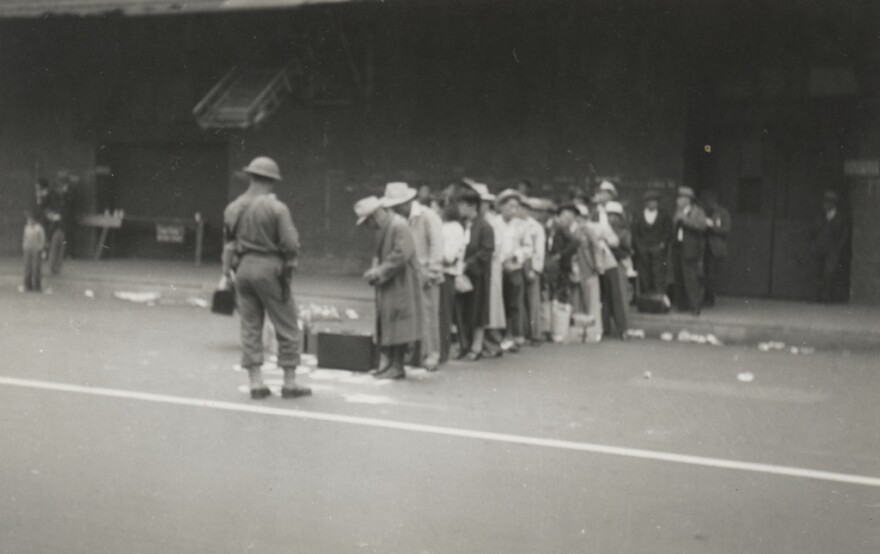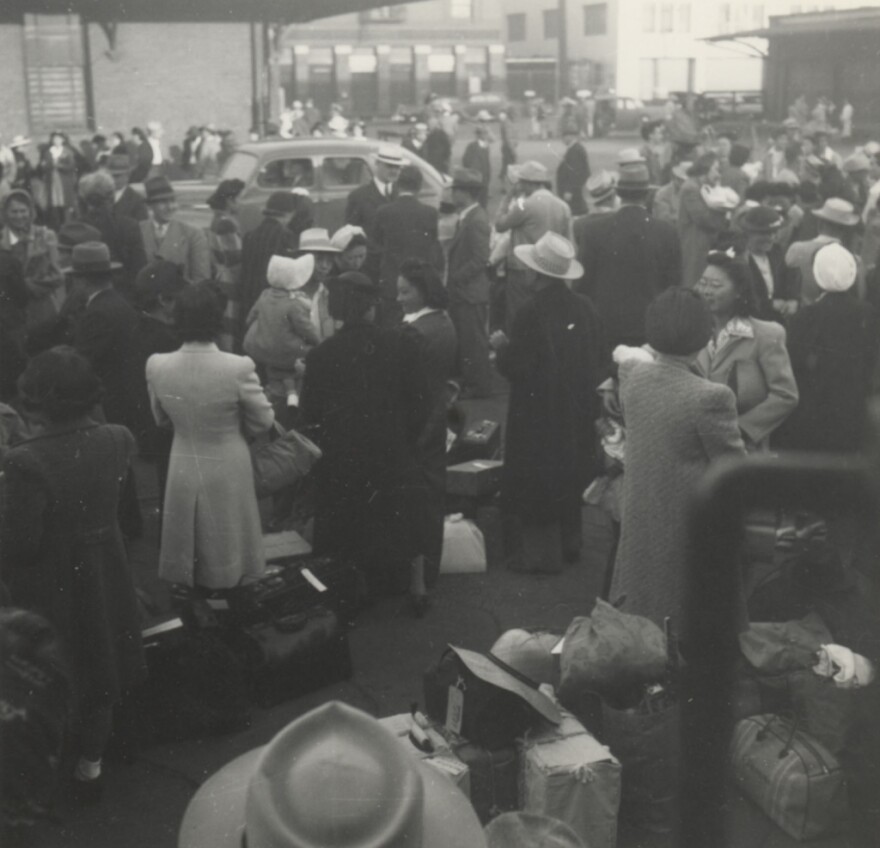Starting this weekend, Los Angeles will commemorate the 75th anniversary of when President Franklin D. Roosevelt signed an order that led to the incarceration of 120,000 people of Japanese descent during World War II.
Feb. 19 — the day Executive Order 9066 was issued — is called the Day of Remembrance and is remembered annually by the Japanese-American community. This year being a major anniversary has given rise to a series of programs including a new exhibition opening Saturday at the Japanese American National Museum in Little Tokyo.
The show centerpiece is the original Executive Order 9066, on loan from the National Archives. Organizers say it's the first time the three-page document has been shown outside of Washington D.C.
"It just felt really important for the nisei [second-generation Japanese Americans] to witness firsthand documents that have never been shown on the West Coast," museum curator Clement Hanami said. "They literally are the cause of what the Japanese-Americans had to go through — two-thirds of whom were American citizens."
The exhibition, “Instructions to All Persons: Reflections on Executive Order 9066," displays dozens of other documents and photographs, as well as art installations by Japanese-American artists Mike Saijo and Wendy Maruyama. The show will run until Aug. 13, though the original copy of the executive order will only be on view until May 21.

Masako Murakami, who is sansei, or third-generation Japanese American, said the exhibit has surprised her with how much of an emotional impact it's had on her. Her memories of the Tule Lake camp her family was sent to are that of an 8-year-old. Seeing the images of the camps made her realize what her late parents went through.
"My parents never talked about it," Murakami said. "I think it's going to open up a lot of dialogue among (Japanese-Americans) too."
Organizers said the exhibit is especially pertinent today, in light of a new president who's enthusiastically wielded his executive powers, including issuing a temporary travel ban against citizens of seven Muslim-majority countries — which has since been temporarily blocked by federal appeals court judges.
The exhibition will also feature the Presidential Proclamation 2537, which preceded the executive order by a month and required residents from enemy countries – Germany, Italy and Japan — to register with the federal government.
Actor and activist George Takei helped to introduce the exhibition at a Friday event at the Japanese American National Museum.

Although he was only 5 when his family was first sent to a camp in Arkansas, Takei could vividly remember a life of incarceration.
"I can see the barbed wire fence and sentry tower right outside my schoolhouse windows as I recited the words 'With liberty and justice for all," Takei said.
Takei said he was worried about Muslim Americans facing the same discrimination Japanese Americans had, but he said that 75 years later, people are more tolerant.
"It is a different America today," Takei said. "Immediately, massive crowds of Americans rushed to their airports, resisted, opposed the executive order."
Bob Moriguchi, who was interned in Colorado with his family at age 10, said Americans are also better informed and able to organize meetings and rallies quickly through social media.
"If we had that type of support, we wouldn’t have been put into concentration camps," Moriguchi said.
Other anniversary events:
- Feb. 18 at the Japanese American National Museum: The Day of Remembrance Committee, made up of members of local Japanese American organizations, will hold a commemoration program at 2 p.m. followed by a rally at 3:30 p.m.
- Feb. 26 at the Aratani Theatre. Artists at Play and the Japanese American Cultural & Community Center present the drama “Question 27, Question 28" about Japanese American female internees at 3 p.m.
An original version of the story misstated the name of the theater group putting on Question 27, Question 28. We regret the error.






